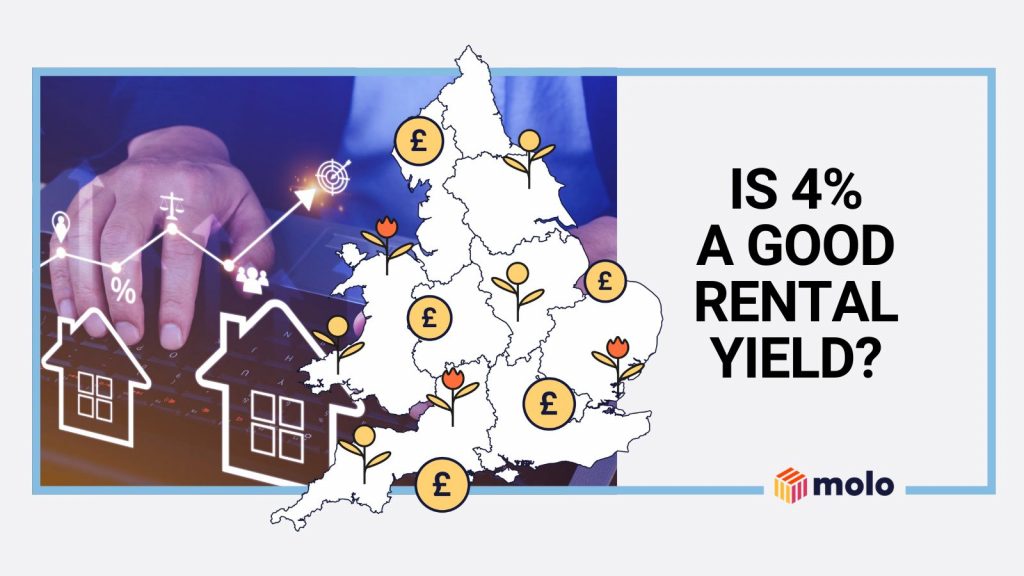5 first time landlord mistakes
Renting out a property might sound simple enough, but there are some common pitfalls to be aware of when becoming a new landlord.
Underestimating costs
Let’s face it, you probably became a landlord to make some money. And there’s no shame in that! But it can be easy to get carried away in the excitement of fitting out your property and welcoming in your tenants. So much so that costs can quickly escalate and take you by surprise if you’re not careful.
The truth is, a buy-to-let property is a business. And it can be a pretty ruthless one at times, with all sorts of costs arising. So to prevent yourself from spending more than you earn, you need to stay on top of your finances.
Some costs are predictable, like an annual boiler service or utility bill (if included in the tenancy). But others can catch you out, like a broken boiler or a water leak. You might even find yourself without a tenant for a few months. To protect yourself from being caught out, put a plan together, set aside a fund for repairs and take out the necessary insurance.
Not storing the tenant’s deposit correctly
When a tenant moves in, they’ll pay their landlord a deposit (usually 4-6 week’s rent). Unless the tenant causes any damage to the property or misses rent payments, the deposit has to be returned to them at the end of the tenancy.
But what a first time landlord might not be aware of is that the deposit can’t just be held in a regular bank account. It has to be held in a Government-approved tenants’ deposit protection (TDP) scheme, of which there are several to choose from. This protects the tenant from rogue landlords using their money when they shouldn’t.
You’ll have 30 days to register the deposit from the day you receive it, and not doing so could result in a hefty fine. There are different schemes available depending on where you live, but you can find a suitable scheme on the Gov.uk website.
Not shopping around for a lettings agent
A lettings agent can help find and vet tenants, manage the day-to-day running of the property, and handle any difficult issues that may arise. For some people, they’re worth their weight in gold. But before you appoint your local agent, it’s worth shopping around first.
Letting agents can vary drastically, both in quality and price. And choosing the wrong one can be the start of a difficult relationship for both you and your tenant. So before you even look for one, you’ll want to be clear on what you need.
Do you want them to find tenants? If so, you’ll want to ask how many registered tenants they have on their books. Do you want them to handle maintenance on your behalf? If so, you’ll want to check which tradespeople or company they use – are they any good? And what do their online reviews say about them? How much do they charge?
A good way of finding a lettings agent you can be confident in is to ask other landlords for recommendations. Failing that, reviews of most lettings agents can be found online.
Not getting adequate insurance
Becoming a new landlord requires taking on all sorts of risks; accidental damage, malicious damage, loss of income due to gaps between tenancies, etc. So you’ll want to make sure you’re prepared for the worst by getting the right insurance cover.
The usual buildings and contents insurance isn’t adequate for a buy-to-let property. Now that you have tenants, you’ll need to get landlord’s insurance.
Landlords insurance typically includes buildings insurance, which covers structural risks such as fire or flooding. It also usually includes liability insurance, which covers the cost of any injury to a tenant as a result of your building or its contents. This is particularly important because personal injury claims can run into the millions of pounds. Landlords insurance will usually cover contents insurance, so that any damage to your furniture or other items can be compensated. And unlike other insurance, landlords insurance will often cover loss of income from the times when your property isn’t tenanted.
If you need any help with Landlord insurance, Uinsure offers a variety of digital insurance solutions for the buy-to-let market.
Treating tenants like friends
It’s admirable to be a good landlord. But being a good landlord is more than being nice to your tenants. It requires you to be a responsible landlord and sometimes a tough landlord. You’re running a business, after all.
Treating tenants like friends is a risk that’s easy to fall into – you want them to be happy in your property, after all. But sometimes it pays to act in a more distanced and professional capacity, particularly when difficult situations arise.
If a tenant is late paying rent, it might be easier to broach the difficult subject if you have a more formal relationship – imagine how difficult it would be to ask a friend to pay you back for flights after they lost their job, for example. Similarly, dealing with bad behaviour to other neighbours might require a formal letter rather than a quick text or phone call which is more easily dismissed.
It’s okay to be friendly, but sometimes a little formality and professionalism is more effective at resolving tricky situations.
Bonus: not getting the right buy-to-let mortgage
Before you become a first time landlord, you’ll need to purchase a property. And to do this, you’ll need a buy-to-let mortgage – you can’t rent out a property with a residential mortgage.
Getting the right buy-to-let mortgage isn’t difficult, but you do need to make sure you get one that’s right for your circumstances and goals.
For example, many landlords choose to get an interest-only mortgage, where your monthly payments only cover the interest.
At the end of the mortgage term, you pay the full balance. But there is of course a risk to this – you’ll need to be in a position to pay the full balance at the end of the term. This could come from the sale of the property itself (which is likely, but not guaranteed, to have gone up in value) or the sale of other investments. So you’ll need to put a plan in place.
A buy-to-let mortgage in the UK also typically requires a larger deposit than a residential mortgage.
For example, at Molo we require a minimum 20% deposit.
Some lenders require larger deposits, still. If you were to take out a residential mortgage, you might only need a 5% deposit.
If you have questions about getting a first time landlord mortgage, get in touch! Our team’s available seven days a week, to help guide you through our simple online process.



